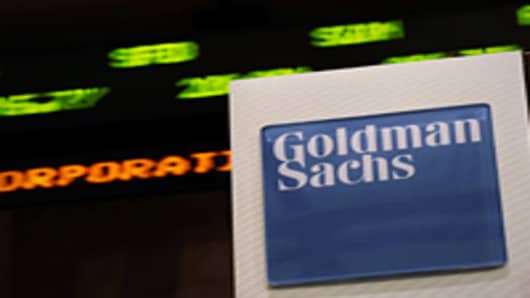Federal and state regulations prohibit what is known as “general solicitation and advertising” in private offerings. Firms like Goldman seeking to raise money cannot take action that resembles public promoting of the offering, like buying advertisements or communicating with media outlets.
Officially, Goldman is telling clients that it is "intense media coverage" that prompted the decision. But this does not really make sense. If Goldman had done nothing to prompt the media attention, the SEC would lack grounds to harass Goldman over the private placement. It seems more likely that Goldman knows—or, at least, suspects—that an investigation into how the news got into the hands of Sorkin and Craig would point back to Goldman itself.
Let's look at how this story unfolded. The original Sorkin-Craig piece described an email to clients that went out on January 2 from Goldman Sachs.
"Goldman Sachs has reached out to its wealthy private clients, offering them a chance to invest in Facebook, the hot social networking giant that is considering a possible public offering in 2012, according to people familiar with the matter," was how the Times story began.
Most readers probably had assumed that one of Goldman's clients had leaked to Sorkin-Craig.
But we now know, thanks to Sorkin's latest column, that Goldman's email wasn't the source of the story. In fact it was the result of the story:
Goldman had not been planning to initiate the offering that night, but it sped up the process after The Times called the firm seeking comment, according to an executive who spoke on the condition of anonymity because he was not authorized to speak.
That night, a Goldman spokesman declined to comment. Late that night, before the report was published, executives in Goldman’s private wealth-management unit e-mailed their clients about the offering, people who received the e-mail said.
In his own delicate way, Sorkin is pointing out that Goldman Sachs is full of malarkey when it cites intense media scrutiny as the reason for withdrawing its offering to US clients. In fact, it was media scrutiny that prompted Goldman to tell its US clients about the offering.
If Craig-Sorkin found out about the offering before Goldman's clients, then it could have only come from a person working on the deal. That means: Goldman Sachs, the Russian fund Digital Sky Technologies, Facebook, or any of their lawyers. Given that Craig and Sorkin are Wall Street reporters, it seems most likely that the leak came from Goldman or a New York law firm.
If the leak did come from Goldman, that could indeed raise serious securities law concerns. And it would, at least, justify Goldman's decision to restrict the offering to those outside the purview of the SEC.
___________________________________________________
Questions? Comments? Email us atNetNet@cnbc.com
Follow John on Twitter @ twitter.com/Carney
Follow NetNet on Twitter @ twitter.com/CNBCnetnet
Facebook us @ www.facebook.com/NetNetCNBC



